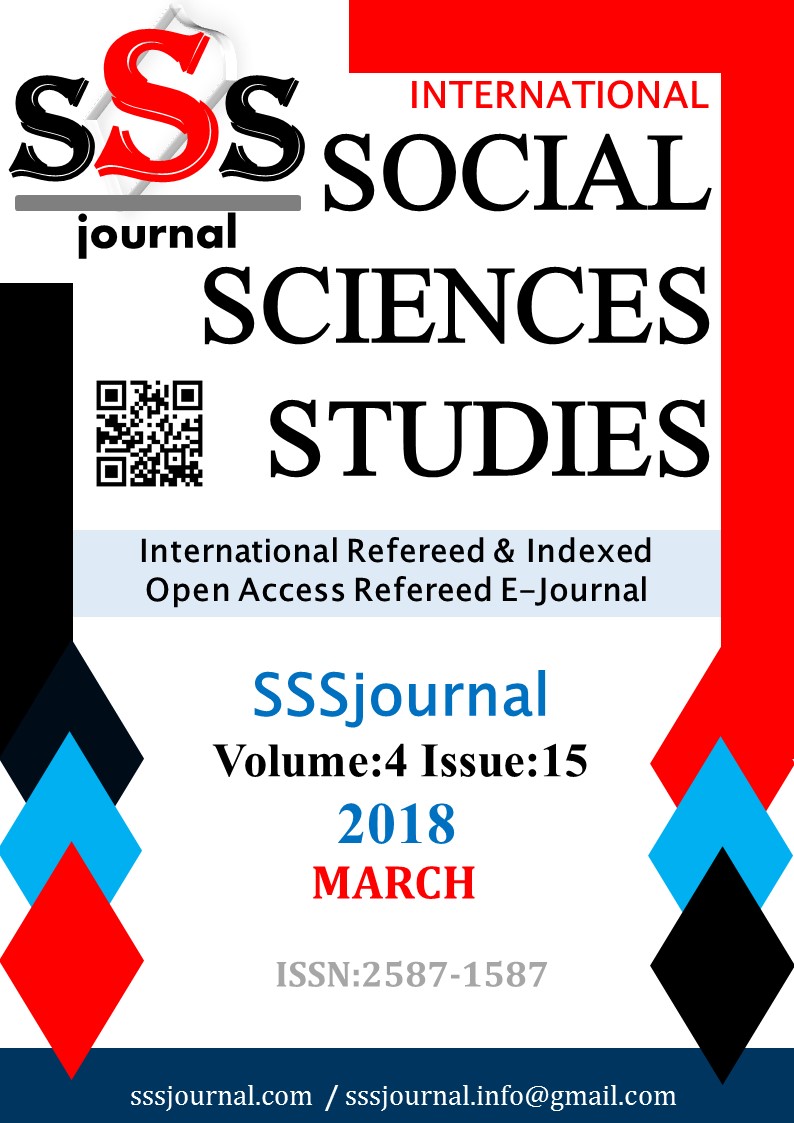Author :
Abstract
Keywords
Abstract
This study investigates the power concept and the role of power in organizations. The “power over” approach, as a main dimension to understand power, is tried to be clarified with a historical focus. This study focuses on the power over approach, and the role of this approach on the relationships among individuals. Power over approach argues that power exists because of conflict of interest. So power is primarily about to overcome conflict of interest which occurs when people want different things and have different interests that lie in different directions. In this context, conceptual development of the power over approach, power over approach in organizations, power to approach, the distinction between these approaches and reflection of this distinction to organizational environment is explained. The role of power over and power to approaches on the conflicts among individuals and collective actions in the organizations is also discussed. It is concluded that power relations are important to overcome conflict of interest.
Keywords
- Bachrach P. and Baratz M.S. (1962). “Two Faces of Power” The American Political Science Review, Vol.
- Bachrach P. and Baratz M.S. (1962). “Two Faces of Power” The American Political Science Review, Vol. 56, No. 4. (Dec., 1962), pp. 947-952.
- Barry B. (1988). “The uses of power”, Government and Opposition, Volume 23, Issue 3, pp.340–353.
- Clegg R. and Haugaard M. (2009). “Why Power is Central Concept of the Social Sciences” The SAGE Handbook of Power, SAGE Publications Ltd. pp.1-24.
- Chris Carter, Stewart Clegg, Martin Kornberger, (2010) "Re‐framing strategy: power, politics and accounting", Accounting, Auditing & Accountability Journal, Vol. 23 Issue: 5, pp.573-594,
- Dahl, R.A., 1956. A preface to democratic theory. Berkeley: University of California Press.
- Dowding, K (2009). “Rational choice Approaches”, The SAGE Handbook of Power, edited by Clegg S. R. and Haugaard M., SAGE Publications Ltd. pp.40-53.
- Gohler G., (2009). “Power to” and “Power over”, The SAGE Handbook of Power, edited by Clegg S. R. and Haugaard M. , SAGE Publications Ltd. pp.27-39.
- Hobbes, T. (1968). “Leviathan”, Harmondsworth: Penguin.
- Holmes, D., Hughes, K. & Julian, R. (2007), “A Changing Society”. 2nd Edition. Pearson Education Australia. Frenchs Forest, NSW.
- Lovett F. (2007). “Power”, Ch. 41 in R.E Goodin et al (ed), A Companion to Political Philosophy. Oxford: Blackwell, 2007. Second edition, pp. 709-18.
- Luhman N. (1979). “Trust and Power”, Chichester: Wiley, pp. 105-198.Lukes, S. ([1974] 2005). Power: A radical view (Vol. 1). Macmillan: London
- Mclean I. (2001). “Review Article: William H. Riker and The Invention of Heresthetic(s)” Nuffield College, Oxford OX1 1NF, UK.
- Mills C. W. (1959). “The Sociological Imagination” New York Oxford University Press 1959.Nye J. S. (2008). “The Powers to Lead” (New York: Oxford University Press, 2008). Ch. 2.
- Mancur O. (1965). “The Logic of Collective Action: Public Goods and the Theory of Groups”, Cambridge, MA: Harvard University Press.
- Oxford Dictionary, https://en.oxforddictionaries.com/definition/authority, 01.03.2018.
- Parsons T. (1963). ‘On the Concept of Political Power’, Proceedings of the American Philosophical Society, Vol. 107, No. 3 (Jun. 19, 1963), pp.232-262.
- Lukes S. (2005). Power: A Radical View. Palgrave, 2005, Second edition.
- Stigler, G. J. (1968). “The Organization of Industry”, The University of Chicago Press, Ltd., London.
- Vermeer, Hans J. 2006. Luhmann’s ‘Social Systems’ Theory: Preliminary Fragments of a Theory of Translation. Berlin: Frank & Timme.





